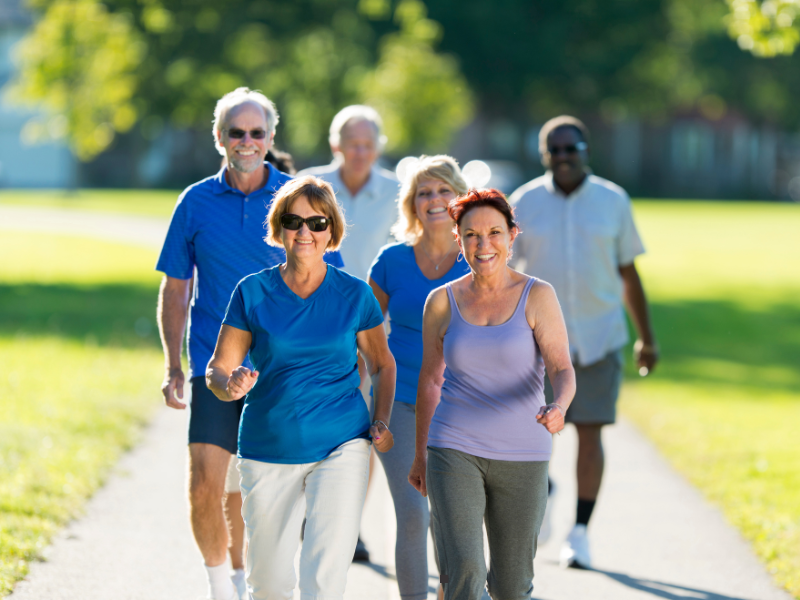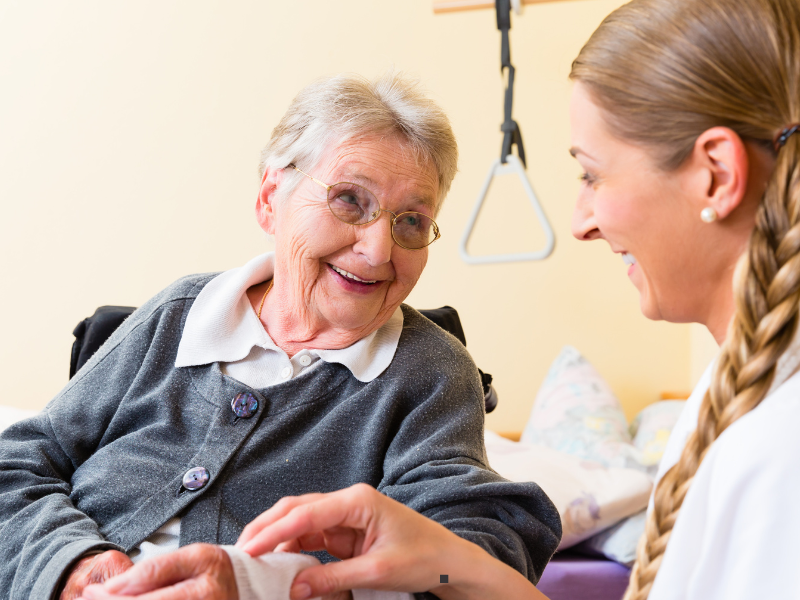Wellness is a connection of paths: knowledge and action – Joshua Holtz
Of course, we know what wellness is, because Damey is a nurse, and we’re in the business of Making Life Easier™ for our senior clients at Home Helpers, in our efforts to support their well-being and senior independence.
Since August is National Wellness Month, it’s important to review what a successful wellness journey looks like for aging adults.
- See your primary care physician for wellness visits and recommended exams and screenings. Wellness visits are extremely important. Today’s wellness exams go beyond the standard physical, allowing doctors to identify preventive measures that will keep you healthier and save you money.
- Stay active and exercise regularly. As we age, it can be easy to find excuses to let ourselves slow down. However, exercise is vitally important for seniors. “Exercise improves your quality of life, meaning everything from how much activity we can do, to what kind of mood we’re in,” said Kristina Balangue, MD, a geriatrician at Banner Health.
- Sustain bone health. We often don’t give our bones much thought until we experience a fracture. But, just like any other part of our health, bone health requires regular attention. The good news is that you can start caring for your bones at any age and take steps to slow down bone loss.
- Maintain healthy joints. Aging gracefully can sometimes be a pain…in your joints, that is. Whether it’s due to disease or injury, any damage can interfere with your movement and take a toll on your entire body.
- Eat a heart-healthy diet. Taking care of your heart should be a top priority for everyone. The good news is that there are some easy ways to keep your heart ticking for years to come. Eating a healthy diet is an important first step.
- Keep an eye on your eye health. It’s important to have your eyes checked regularly to prevent eye diseases such as age-related macular degeneration, cataracts, glaucoma, low vision, and even dry eyes. Set up an appointment now for a routine eye exam.
- Pay attention to hearing impairments. Don’t let hearing loss interfere with your day-to-day activities. Make an appointment with your healthcare provider today to see if hearing aids may be right for you.
- Keep a good footing. Your feet and ankles are put under constant pressure making them susceptible, in some instances, to inflammation, pain and limited movement and flexibility. Taking care of your feet and wearing appropriate footwear is important to maintaining an active lifestyle.
- Organization and safety are key with medications. Especially as we age, you might need to take different medications to manage different health conditions. It’s important to review your medications regularly with your pharmacist and your healthcare provider to make sure everything is necessary and to identify possible interactions.
- Get a good night’s sleep. Why does restful sleep get more elusive the older we get? Studies have shown that 50% of Americans over the age of 65 suffer from sleep problems; and as we age, losing sleep at night can also lead to other health concerns, like an increased risk of falling and daytime fatigue.
To help get the rest you need, Dr. Joyce Lee-Iannotti, MD, a neurologist and sleep specialist, gives these 10 tips for a more restful sleep. If you have put Dr. Lee-Iannotti’s tips into practice and still struggle to rest, make an appointment with your physician to find a solution.
The well-being of our clients is what we’re all about at Home Helpers. Whatever we can do to make life easier and healthier will always be our mission. Our caregivers are background-checked, licensed, bonded, insured, and skillfully trained to provide a variety of in-home care services to support seniors on their wellness journey.
Damey and I invite you to take advantage of our FREE consultation at your convenience. She or I will meet with you or your senior loved one to create a personalized care plan that includes the services deemed most beneficial in maintaining senior independence in the Canton area.
Home Helpers® Canton, OH, is Veteran-owned and operated. We are honored to have received the Home Care Pulse – Best of Home Care® Provider of Choice Award, the Shooting Star Award (2011), and multiple Platinum awards for the superior level of care we provide. We are Certified Senior Advisors and members of the Home Care Association of America, Alzheimer’s Association, and International Franchise Association. Additionally, we were ranked in the Top 500 Franchises by Entrepreneur Magazine in 2019.
Home Helpers® Canton is Making Life Easier™ every day for male and female seniors in Stark County, Portage County, and portions of Summit County, including the communities of Akron, Alliance, Canton, East Sparta, Hartville, Jackson, Massillon, Navarre, North Canton, Randolph, and surrounding areas. 330.892.9329
Source:










